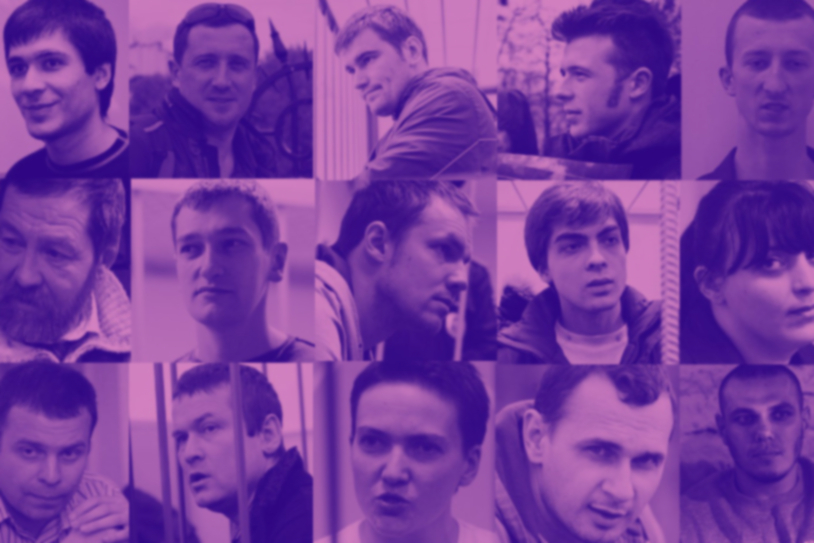Khodorkovsky and Navalny will help political prisoners

Mikhail Khodorkovsky, head of the Open Russia movement, and Alexei Navalny, leader of the Anti-Corruption Fund, have unveiled a joint project of assistance to political prisoners.
The names of 22 people who will be provided with one-time material assistance in the amount of 100,000 roubles, were announced on 31 August.
About the project
“Criminal prosecution for political motives is something both of us have had to endure. Emotionally, the most difficult part of this experience is being aware of the acute unfairness of what is happening to you, and despair at the knowledge that there is no way you can be helped. Unfortunately, in the majority of cases, all efforts to get political prisoners released prove to be insufficient: unfairly accused people get suspended sentences or real prison terms; they lose their health, their profession, and priceless days and years of their lives. But this does not mean that there is no way at all to help these people.
To stand up for the rightness of your cause under the pressure of a well-oiled repressive machine is very hard. In this situation, it is very important to maintain a connection with family, kin, and friends so as not to lose faith in returning back to normal life. It is precisely this kind of support that political prisoners are not always able to get: for example, the family can often not afford the travel expenses to the place of detention. We are launching this project of one-time assistance in such situations: persons charged in politically motivated cases will be able to receive one-time material assistance in the amount of 100,000 roubles.
We would like to be able to help everybody, but our resources are limited. For this reason we have formed an expert council, which will help us make a decision in each concrete case. If you or your close ones have gotten into trouble for political activism, asserting your rights, or expressing a civic position, tell us about your case. We will try to help.”
Mikhail Khodorkovsky
Alexei Navalny
The selection of those in need of financial assistance was carried out by an expert council made up of 24 human rights advocates, lawyers and journalists. They drew up the final list of 22 political prisoners:
Yevgeny Vitishko (ecologist from Krasnodar, participant in “Tkachev’s dacha case”),
Denis Lutskevich (student, former marine, participant in the “Bolotnaya case”),
Alexey Polikhovich(student, participant in the “Bolotnaya case”),
Alexey Gaskarov (activist in the anti-fascist movement, participant in the “Bolotnaya case”),
Leonid Razvozzhayev (“Left Front” activist, participant in the “Bolotnaya case”),
Ilya Gushchin (member of the National-Democratic Party, participant in the “Bolotnaya case”),
Sergey Udaltsov (leader of the “Left Front”, participant in the “Bolotnaya case”),
Taïsia Osipova (“Another Russia” party activist),
Andrey Barabanov (artist, participant in the “Bolotnaya case”),
Stepan Zimin (student, participant in the “Bolotnaya case”),
Alexander Margolin (deputy director of a publication, participant in the “Bolotnaya case”),
Ivan Nepomniashchikh (engineer, participant in the “Bolotnaya case”),
Dmitry Ishevsky (former military, participant in the “Bolotnaya case”),
Alexey Sutuga (participant in the anti-fascist movement),
Oleg Sentsov (Ukrainian movie director, activist),
Alexander Kolchenko (Ukrainian anarchist, anti-fascist),
Oleg Navalny (manager, brother of Alexei Navalny),
Sergey Reznik (opposition journalist),
Sergey Mokhnatkin (civic activist),
Nadezhda Savchenko (Ukrainian pilot, deputy of the Supreme Rada of Ukraine, member of the permanent delegation of Ukraine to the PACE),
Andrey Pivovarov (co-chairman of the Petersburg section of RPR-PARNAS).
As coordinator of the human rights section of Open Russia, Maria Baronova clarified that the main purpose of the support is to give relatives an opportunity to make visits, inasmuch as often, even the families of sufficiently well-known political prisoners do not have sufficient funds to travel to them in the prison colony.
In her words, the project of assistance to political prisoners will be a regular one. A new list of those in need of support is already being drawn up at the present time. You can tell us about your case and ask for assistance on the project’s website.
Read more about the project (in Russian only) here and here.



